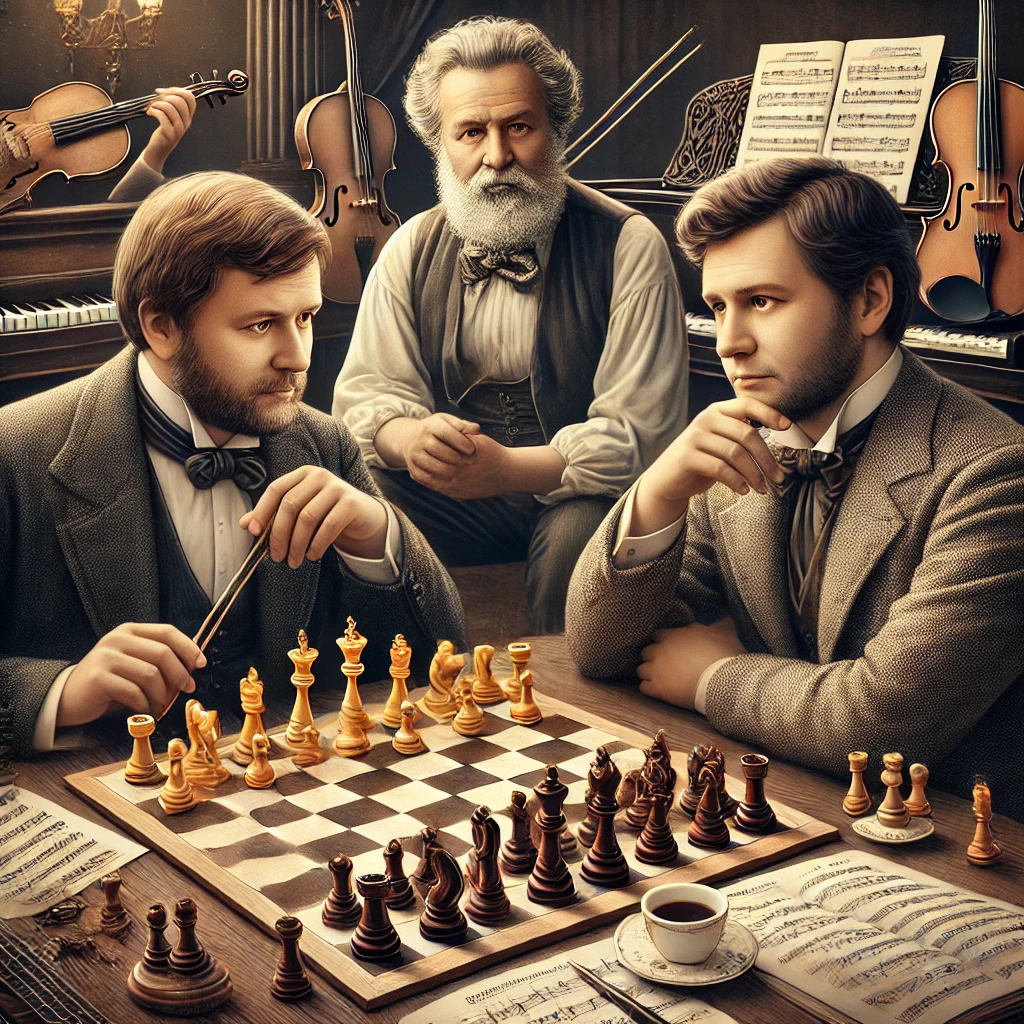Chess, a game of intellect and strategy, has captivated some of the world’s most renowned classical composers, including Sergei Prokofiev, Ignace Paderewski, and Dmitri Shostakovich. Each of these musical geniuses found joy, challenge, and even inspiration in the game, showing how chess played a significant role in their lives and work.
Sergei Prokofiev: The Composer Who Could Have Been a Chess Pro
Sergei Prokofiev, the Russian composer best known for works like Peter and the Wolf and his piano concertos, was perhaps the most devoted to chess. His love for the game began as a child, first sparked by a Chinese chess set in his father’s possession. Though initially discouraged from playing, his persistence paid off when his cousin, a student from Moscow University, taught him the basics during a summer visit. By the end of that summer, Prokofiev was already a formidable player.
Chess became a lifelong passion for Prokofiev, who would often challenge friends and record moves meticulously. One of his childhood chess rivals, Marfusha, even gave him a run for his money in a 20-game match, which lasted months and saw Prokofiev barely edging out with 12 wins. Despite his composing demands, Prokofiev remained committed to chess and once remarked that, had he not pursued music, he might have become a professional chess player. Even in his later years, as his health declined and he had to give up playing, Prokofiev’s passion for the game remained.
Ignace Paderewski: A Master of Memory
Polish pianist and composer Ignace Paderewski also discovered a love for chess in his youth. Growing up in a remote countryside, he often passed time playing chess with his father. Paderewski had an extraordinary ability to visualize the game, playing multiple matches from memory alone, sometimes without even seeing the chessboard. This sharp visual memory, which Paderewski attributed to his chess skills, also contributed to his success as a musician.
Though his memory began to fade in his later years, Paderewski continued to enjoy the game. His love for chess, like his music, was a lifelong companion, with both pursuits feeding off his remarkable memory and intellect.
Dmitri Shostakovich: Art and Science on the Chessboard
Dmitri Shostakovich, famous for his symphonies and chamber works, also had a profound love for chess, which he learned as a child. By age 11, he was already playing at an advanced level. One of Shostakovich’s most memorable chess experiences came at a young age when he unknowingly played against the world chess champion Alexander Alekhine during a chess exhibition at the cinema.
Shostakovich saw chess as a perfect blend of art and science. For him, it provided both relaxation and inspiration, allowing him to balance the demands of composing with moments of strategic contemplation. Though his busy schedule limited his time to play, Shostakovich maintained a deep appreciation for the game throughout his life.
Conclusion
For these composers, chess wasn’t just a hobby—it was a mental challenge that offered them both relaxation and intellectual stimulation. The careful planning and strategy required to excel in chess mirrored the meticulous attention they gave to their music, making it a perfect complement to their creative lives. Whether it was Prokofiev’s competitive streak, Paderewski’s prodigious memory, or Shostakovich’s love for the blend of art and science, chess played an inspiring and integral role in their lives.
Their stories remind us that creativity, intellect, and passion can cross the boundaries of art, science, and strategy, enriching lives in unexpected ways.


